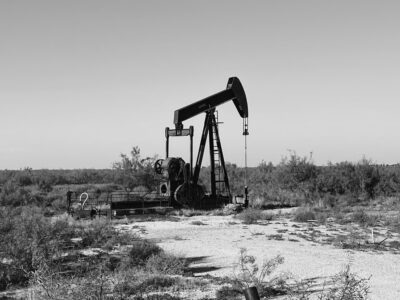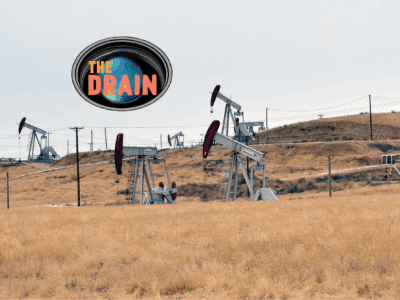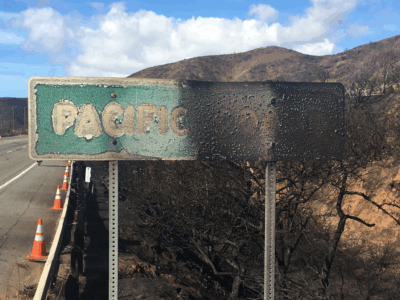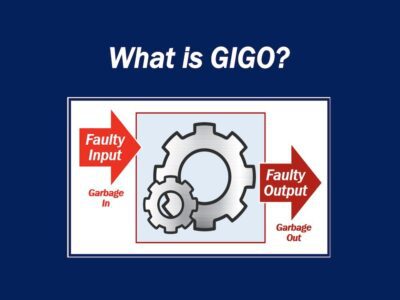General
Global Energy Trends
Trump or no Trump, the global economy is shifting toward clean energy.
Globally, fossil fuels aren’t disappearing but they’re not gaining a lot of ground, while renewables have been booming. Trump can’t do much to change this: right now China is a big player than we are.
CONTINUE READINGNewsom Proposes More Oil Drilling In CA
The State Should Get Far More Benefit
Last Thursday, the Newsom Administration proposed a new law allowing extensive additional oil drilling in California, as long as the new wells are in existing oil fields and the oil company closes one well in the oil field for each one drilled and one in health a safety designated areas. The proposal appears to be …
Continue reading “Newsom Proposes More Oil Drilling In CA”
CONTINUE READINGWhy Did Congress Defund Public Media?
The Drain is a weekly roundup of environmental and climate news from Legal Planet.
We just witnessed the untimely death of a 57-year-old American institution that has made life better for just about everyone. President Lyndon Johnson announced the creation of the Corporation for Public Broadcasting in 1967 to “assist stations and producers who aim for the best in broadcasting good music, in broadcasting exciting plays, and in broadcasting …
Continue reading “Why Did Congress Defund Public Media?”
CONTINUE READINGWhat does ‘Drill, Baby, Drill’ Mean in California?
The Drain is a weekly roundup of environmental and climate news from Legal Planet.
A court fight over oil drilling off the coast of Refugio State Beach near Santa Barbara. Proposals to drill around public schools in Ojai and Los Osos. The potential for oil operations directly adjacent to popular national monuments. New risks to our ecosystems that sustain imperiled species like the California condor. This is what “Drill, …
Continue reading “What does ‘Drill, Baby, Drill’ Mean in California?”
CONTINUE READINGShortchanging the Environment While Making NEPA More Chaotic
Trump replaced a coherent set of rules governing the executive branch with a welter of agency-specific regulations.
In one of Trump’s first executive orders, he eliminated a centralized system that Jimmy Carter initially set up to issue regulations governing environmental impact statements. Instead, he called on each agency to issue its own regulations, which seems to have caused the predictable amount of confusion. There seems to be little rhyme or reason in the variations
CONTINUE READINGJefferson, Adams, and the Environment
The Founding Fathers were more environmentally aware than we give them credit for. Woke, even.
These writings don’t prove that either Jefferson or Adams was an “environmentalist” in the modern sense. But they do show an attitude toward nature that modern environmentalists would recognize. It wasn’t until the end of the 19th Century that the Sierra Club was founded, and environmentalism didn’t become a national force until the 1960s. But we tend to overlook just how deep the roots of environmentalism go in American history.
In that sense, environmentalism is as American as the Fourth of July.
What Have We Learned About Rebuilding from Fire?
Woolsey Fire survivors reflect on the rebuilding process and what might help rebuild more resiliently after the January fires.
When I first met Nicole Fisher in 2019, her property in the Santa Monica Mountains was nothing but a driveway and a pile of cement. I was interviewing the art teacher for a radio story about her family’s plans to rebuild after the 2018 Woolsey Fire that destroyed her home and hundreds of others in …
Continue reading “What Have We Learned About Rebuilding from Fire?”
CONTINUE READINGThe Emperor’s New Endangerment Theory (Part II)
To justify a decision not to regulate CO2 from power plants, EPA had to twist statutory language beyond all recognition.
According to EPA, carbon emissions from the U.S. power sector are too insignificant to warrant regulation. This is a bizarre conclusion: U.S. power sector’s emissions are around 6.5 billion tons, just below Russia’s total emissions from all sectors. To reach this conclusion, EPA has proposed a novel reading of the Clean Air Act. In EPA’s view, before it could regulate those emissions, it would first have to make a formal finding that they “cause or significantly contribute” to climate change, and (2) that this has to be judged on the basis of the sector’s percentage of total global carbon emissions. The statute doesn’t say either of those things.
CONTINUE READINGThe “Big Beautiful Bill” is One Damn Dirty Deal
The Drain is a weekly roundup of environmental and climate news from Legal Planet.
My family is about to take a road trip. Out our window we will see beaches, lakes, and a whole lot of public land that would be eligible to be sold off to developers and corporations under the recent version of a budget bill that Republicans want to rush through this week. Welcome to The …
Continue reading “The “Big Beautiful Bill” is One Damn Dirty Deal”
CONTINUE READINGClimate Adaptation Finance: Garbage In, Garbage Out
A new study reveals the hard truth about the lack of real adaptation data.
Today in Science, a new study delicately uses a lot of words to tell us something that many have long suspected: we really don’t know what in the world is going on. The study, by three scholars at Oxford University’s Environmental Change Institute, notes that pretty much all climate adaptation funds focus on inputs — how much has …
Continue reading “Climate Adaptation Finance: Garbage In, Garbage Out”
CONTINUE READING












